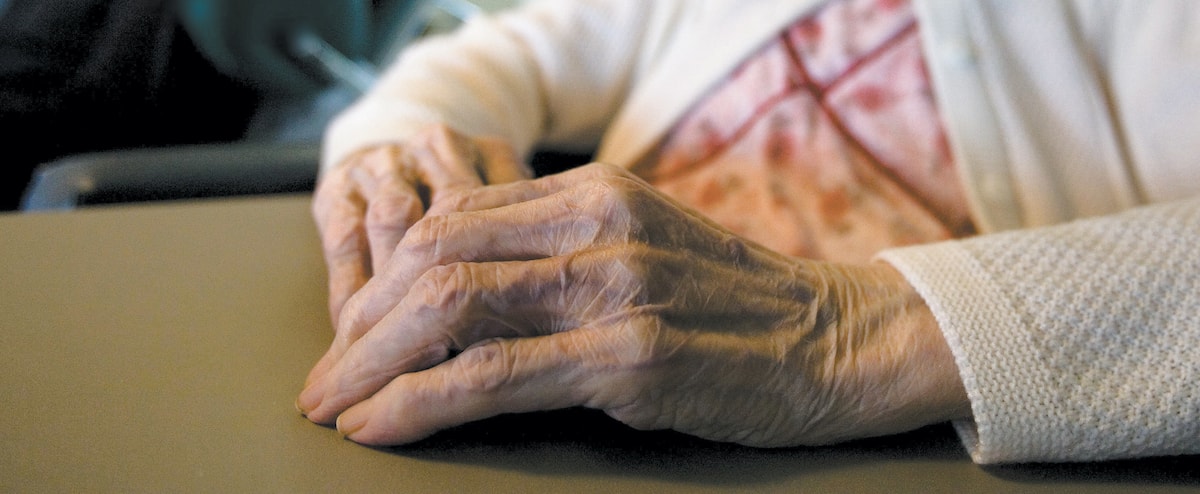A report on the presence or absence of persons with intellectual disabilities in the homes of the elderly in the future, which was published on June 2 on the page of Ci Radio-Canada Côte-Nord, notes the observations of a member for Duplessis before the National Assembly, Mrs. Lauren Richard, to the effect that people People with intellectual disabilities should not reside in the homes of the elderly in the future.
Put things straight
Senior Homes and Alternative Homes for the Disabled are part of a suite of services that wish to meet the diverse needs of these clients. Thus, for more sedentary, disabled or elderly people, home is the obvious answer. At the other end of the spectrum, for less independent people who need important care, institutions such as CHSLDs can provide appropriate services.
For several years, different groups working with people with disabilities have decried a particular diversity of CHSLDs. What is deplorable is the accommodation of disabled people in the prime of life with people at the end of their lives. We all know stories where a disabled 20 or 30 year old is placed in a facility with people whose average age is often around 80 or 85.
For example, a project aimed at bringing together young people with disabilities was studied at the CHSLD Pavilion in early 2010 in the Haut-Richelieu region. The goal was to create living environments that are compatible with customers. This project, which cost almost zero, was abandoned due to a lack of will on the part of the health network.
different needs
The needs of these two clients, the elderly and the disabled, can be divided into two main categories: medical or health care needs and socialization and leisure needs. The medical or health needs of the two types of clients can be combined, but the needs for socialization or entertainment can differ.
Older people and people with disabilities may have common needs such as medication and personal care such as getting up or going to bed, bathing, etc. However, a 20-year-old disabled person may want to listen to rap or salsa, go out with friends, go to the movies, go to drawing lessons, etc. While older people may prefer quieter music, watching TV, etc.1. It can also be difficult to reconcile tastes when it comes to TV shows or movies.
Seniors Homes and Alternative Homes are designed to provide a living environment that meets the specific needs of each of these clients. So we agree with the principle of not mixing these two clients in the same living environment.
However, what should be done with a 60-year-old disabled person who has lived all his life in his home, but as he gets older, finds himself in a situation where his needs are such that they must be accommodated in a resource? Older type home or alternative home. To which institution should it be directed? In our opinion, what distinguishes Elder Homes from Alternative Homes is a person’s age.
Does the person have an aging profile or not? When a person has a geriatric profile, he or she must be referred to seniors’ homes, regardless of whether or not the person has an intellectual disability or other disability. On the other hand, we believe that a disabled person who is already living in an alternative home should have the option to choose whether they want to stay there or whether they want to go to a seniors’ home when their profile becomes a seniors’ profile.
1 We do not want to fall into clichés, but readers will understand that the tastes and activities of the elderly differ from those of the young.
whole people
It must be remembered that for several years, the disabled community has campaigned for people with disabilities, regardless of the nature of their disability, to be recognized as full people. People with disabilities go to day care, to school in regular classrooms, to work and live a very normal life when the obstacles that could put them in a disability situation are removed. They deserve services that cater to their needs, and that can mean going to the seniors’ home as they approach the evening of their lives. A disabled person is first and foremost a person.
Bertrand Legault coordinator
Pierre Nadeau, development agent
Association of Information on Housing and Modified Buildings

“Total creator. Evil zombie fan. Food evangelist. Alcohol practitioner. Web aficionado. Passionate beer advocate.”

